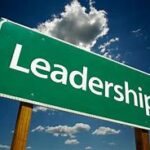
Story by
A little introspection may alleviate the growing challenge of leadership fatigue.
What if corporate leaders took a moment to reflect not just on what they need to accomplish, but on who they aspire to be? It might seem a bit indulgent, but McKinsey research indicates that pausing for self-reflection can truly help alleviate the growing challenge of leadership fatigue—the deep exhaustion that many CEOs and top leaders feel from constant or overwhelming pressures.
Introspection is a wonderful way for leaders to develop important human skills such as empathy, generosity, vulnerability, and adaptability, which can help combat burnout. It sparks boldness and nurtures a leadership mindset that supports ongoing high performance. McKinsey’s research shows that organizations investing in human capital are 1.5 times more likely to maintain their high standards.
“It’s about how leaders navigate the unexpected events, and how they do it in a way that brings along the people they’re leading,” said Dana Maor, a senior partner at McKinsey & Company who is one of four authors of a book featuring the research.
Develop self-awareness
The book, The Journey of Leadership: How CEOs Learn to Lead from the Inside Out, examines CEOs’ personal and professional growth amid leadership challenges. Maor and her co-authors—McKinsey partners Hans-Werner Kaas, Kurt Strovink, and Ramesh Srinivasan—discuss how leaders can develop self-awareness to foster change.
Using stories and strategies, they promote human-centered leadership, urging humility and continuous learning in a dynamic business environment. Success relies on self-reflection, generosity, mindfulness, and micro-practices—daily actions that reinforce purpose.
As leadership pressures continue to grow—from making tough decisions to dealing with the fallout of unmet goals—it’s no surprise that leadership fatigue is becoming more common. Last year, we saw a significant shift, with 2,221 CEOs in the U.S. stepping down, a 16-percent increase, and the average duration at Fortune companies dropping from six to five years.
Experts emphasize the importance of human-centric leadership, especially during these uncertain times, and highlight self-reflection as an essential starting point. Leaders are encouraged to seek honest feedback from trusted colleagues and to look inward by asking themselves vital questions. This practice helps build empathy, humility, and vulnerability.
As Ramesh Srinivasan beautifully put it, “What we realized is that the human-centric elements are the toughest questions to ask oneself.” These questions might include: How am I managing my time? What energizes me? How can I improve performance? And how can I inspire my team and make a positive impact in the world?
Develop trust through vulnerability
Leaders must recognize that essential human-centric skills aren’t necessarily developed on the way to the top. McKinsey found that 83 percent of leaders worldwide were unprepared for top roles, as being a strategist or a genius isn’t enough.
Human-centric skills enable leaders to connect with teams and foster motivation. A CEO’s willingness to show vulnerability by seeking input or admitting mistakes can build trust and promote a culture of openness and continuous learning, crucial for long-term success.
The art of balance is truly important: Leaders should embody qualities that might seem to be opposites, like courage and vulnerability, confidence and adaptability. Great leaders recognize that showing empathy and being generous help create a setting where everyone feels appreciated and empowered.
They also see that selflessness means focusing on creating value rather than just personal goals, and take time for themselves through activities such as meditation, deep breathing, and yoga to help reduce stress and stay focused.
Giving oneself grace is crucial for CEOs, as even experienced leaders struggle with inner work. It requires self-awareness, ongoing practice, and support from trusted advisers. McKinsey’s research shows that small, daily steps help reinforce purpose.
“The most successful approach we have seen for CEOs to reinvent themselves as human-centric leaders is to make numerous, small behavioral changes, which we call micro-practices. We often frame it as ‘unlearning’ management techniques and ‘re-learning’ human-centric attributes,” said Hans-Werner Kaas.
The payoff is clear: Leaders who develop personally can better inspire their teams, ensure well-being, and drive results. Inner work to develop human-centric skills helps leaders deliver better outcomes for organizations and their people.
This post originally appeared at inc.com.




